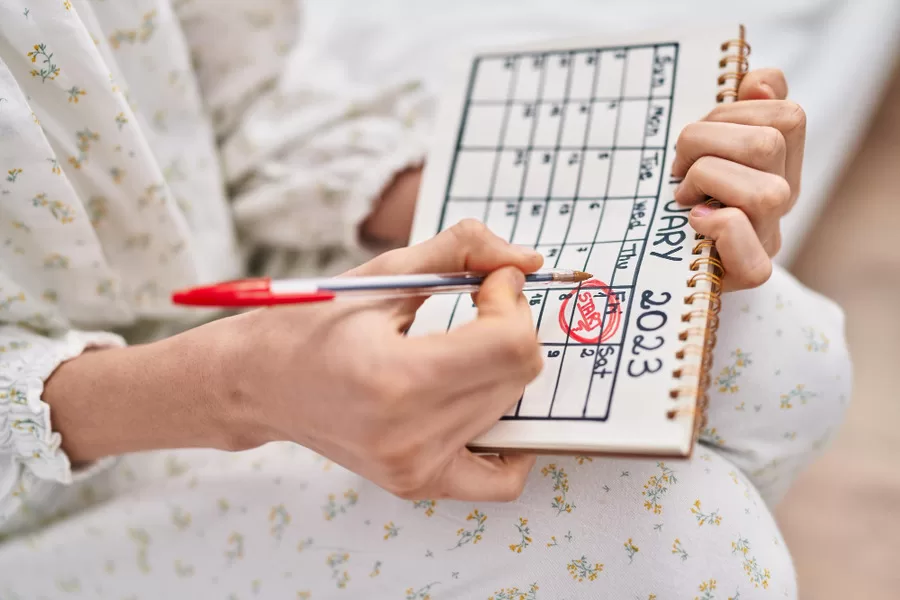Understanding the complicated interconnections between the menstrual cycle and libido is paramount for untangling the mysteries of female sexual healthiness. The menstrual cycle, with its hormonal swings, carries an amazing linkage to a woman’s sexual wish and arousal.
This article considers scientific nuances of how hormonal alterations during multifarious phases of the menstrual cycle can influence libido, granting light on a theme frequently surrounded by assumptions and misconceptions. Unraveling the intricacies of this relationship can deliver individuals useful information about their own bodies and promote a more knowledgeable and open discussion on sexual well-being.
What is Libido
Libido implies a person’s general sexual drive or wish for sexual activity. It is a complicated and polyhedral aspect of human psychology and physiology that contains a spectrum of factors, in particular, biological, psychological, and social components. The term is frequently associated with Sigmund Freud, the famous founder of psychoanalysis, who presented it as a pivotal element of the human psyche.
Biologically, libido may be influenced by hormones, in particular testosterone and estrogen, which play paramount roles in regulating sexual wishes. Multifarious life stages like puberty, pregnancy, and menopause, can influence hormonal levels and, therefore, libido. Furthermore, medical conditions, remedies, and lifestyle factors, particularly, stress, tiredness, and general healthiness can impact libido.
How Menstrual Cycle Affects Your Libido?
The menstrual cycle’s influence on libido is complicated. During ovulation, commonly around the middle of the cycle, raised estrogen levels can reinforce sexual wishes. And vice versa, the premenstrual phase, characterized by progesterone dominance, may drive to diminished libido and discomfort.
Clomid, a fertility remedy, impacts the menstrual cycle by evoking ovulation. Although its major objective is to contribute to conception, Clomid’s hormonal effects can indirectly influence libido. Some women inform about alterations in sexual wishes as a side effect.
Comprehending these hormonal swings is paramount for individuals striving to control their sexual well-being throughout the menstrual cycle and fertility treatments with cures, in particular, Clomid. Furthermore, it is crucial to consult a physician before employing diverse remedies, including Clomid.
Why am I horny before period?
Hormonal swings play a pivotal role in sexual wish, and the splash in estrogen just before your period can reinforce arousal. Boosted blood flow to the pelvic area and an increase in testosterone promote elevated sensitivity. Furthermore, some individuals encounter a desire for intimacy as a form of comfort or stress relief during premenstrual signs. Comprehending these hormonal shifts can assist in normalizing these feelings, stressing the significance of self-care and communication in handling sexual well-being throughout the menstrual cycle.
Follicular Phase
The follicular phase marks the start of the menstrual cycle, generally lasting 10-16 days. During this period, the pituitary gland produces follicle-stimulating hormone (FSH), stimulating the maturation of ovarian follicles. Estrogen levels advance, prompting the thickening of the uterine lining in preparation for possible pregnancy. Remarkably, a lot of women note elevated energy and libido during the follicular phase, connected with the splash in estrogen.
This phase opens a window of boosted vitality and sexual drive, promoting the dynamic nature of the menstrual cycle.
Comprehending these hormonal swings is key to sorting out the varied physiological experiences women encounter throughout their menstrual cycles.
Ovulation
Ovulation, in turn, marks the peak of estrogen levels, triggering a splash in reproductive readiness. When the estrogen level reaches its peak, the ovaries release an egg, promoting fertility. It is interesting that many women note elevated libido and wishes during this phase. Scientifically, this splash in sexual appetite corresponds with evolutionary strategies, contributing to procreation during the most fertile period.
The body’s complex dance of hormones manages this phenomenon, crafting a natural tempo that syncs with the possibility of conception. Comprehending these hormonal swings grants light on the complicated interplay between biology and wish, stressing the amazing intricacies of the female reproductive system.
Luteal Phase
The luteal phase is known as the second half of the menstrual cycle. It is characterized by a drop in estrogen and testosterone levels. This hormonal shift frequently drives to multifarious symptoms, in particular, lowering libido for numerous women. Since estrogen and testosterone decline in preparation for menstruation, physiological alterations can influence sexual wishes.
Understanding these swings is paramount for women’s healthiness since it grants light on the natural modifications in hormonal levels throughout the menstrual cycle. Although individual experiences may differ, accepting the luteal phase’s impact on libido can promote a better comprehension of women’s general well-being and hormonal balance.
Menstruation
Menstruation’s influence on libido is a complicated interaction of hormonal shifts. Although cramps and bloating may diminish libido because of discomfort, the decline in estrogen and progesterone can paradoxically boost sexual wishes for some women.
Hormonal swings impact individuals differently, making libido reactions during menstruation unique. Understanding these nuances enables one to approach sexual healthiness more empathetically, acknowledging the variability in how women encounter and manage their wishes throughout the menstrual cycle.
Summary
To sum up, comprehending the intricate relationship between the menstrual cycle and libido is paramount for ensuring sexual well-being. Although hormonal swings may impact desire, communication and emotional linkage remain crucial. Incorporating open dialogue and crafting a supportive atmosphere can reinforce intimacy, overcoming the cyclical nature of desire.
FAQ
What day of the cycle is the libido highest?
Although every person is unique, a lot of individuals experience a more heightened sex drive during ovulation, or directly at the end of the follicular phase. This is when estrogen reaches its maximum.
Does menstruation affect libido?
The phases of your menstrual cycle can and frequently do have an influence on your libido. Individuals can feel much more interested in sex very frequently in the middle of their cycle, or when they ovulate.
At what age does a woman’s libido peak?
Some studies present that women may experience a libido peak in their 30s and 40s. However, it is worth stressing that women’s sexual wishes may vary throughout their lives.
